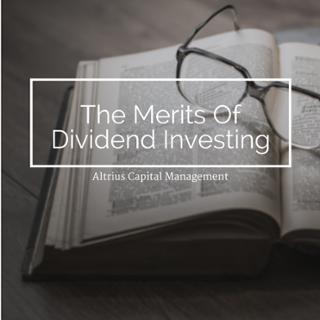Volatility, Noise and Media Madness

The past week has continued the recent pattern of extreme volatility this year with major indices again moving into negative territory year-to-date. Though I will publish the more comprehensive market and economic quarterly newsletter soon, I thought I'd share a portion of the chapter on Media Madness from the book I'm currently writing. I hope you find the snippets from the chapter more useful than the "experts" shouting advice encouraging you to take rash action.
The financial media is one of the most persuasive - and corrosive - influences on investor behavior. As a resource for credible investment guidance, it's on a par with the guy selling tip sheets at the racetrack. If you choose just one influence to avoid, I suggest you make it the financial news media.
It hurts my ears to hear some talking head expound on the reasons why the market is up or down, or (breaking news!) what the market will do tomorrow. It's like listening to the double-talk of politicians or press secretaries. I suppose the investment managers who guest on financial media expect their appearance will be good for business, even as they are assailed by the host to predict the direction of the market or to "tell us about some stocks you like." It's hard to imagine investors would actually risk their money on such force-fed speculation, but research indicates there is a cause and effect related to these guesswork episodes. There's certainly no shortage of managers and analysts willing to subject themselves to this interrogation, indeed many of them seem quite willing to play market prophet, given that if they are wrong, there is no one to drag them back on the air to try to explain their miscalculations to the poor saps who took their advice and got clobbered, certainly no one associated with the media that trotted them out as experts in the first place.
I've spent the better part of the last 20 years advising our clients and investors to think long term, but it's a challenge when they are continually bombarded by the media's so-called experts reporting on what's happening every five seconds. There is so much misinformation that investors would be better off watching Rocky & Bullwinkle reruns - or better, the History Channel - than listening to the advice spewed by financial media's talking heads.
Today, when a money manager or analyst on TV recommends a stock, a disclaimer appears as to whether or not the person owns the stock, the idea being he is unbiased and has nothing to gain if he doesn't own it. But why should you buy a stock recommended by an analyst who doesn't own it himself? If it's so good, why isn't he buying it? It's reminiscent of advisors who sell annuities but who don't have any of their own money invested in them. They say annuities are good for their clients, but I would argue that they are much better for the brokers who receive a 6 or 7% commission for selling them.
I sometimes think there must be an obscure financial news employee with a Rolodex of potential talking heads labeled Optimists or Doomsayers. When the market tanks, they call up the doomsayers like David Stockman, the OMB "wunderkind" whose admitted "poor judgment and loose talk" damaged President Raegan's economic program. His continual proclamations that the market is about to descend into chaos, like a stopped clock, is right two seconds a day. His and other doomsday advocates, like Nouriel Roubini (aka Dr Doom) become de rigueur talking heads when the market heads downward.
Don't expect to get substantive investment information from the pundits and assorted talking heads who appear on financial news shows. None of them knows what the markets are going to do tomorrow, next week or next year. They are on the air because the networks need to fill time so they can sell advertising. The guests are there to promote their agenda, business or latest book.
The media knows that men are psychologically wired to act, to do something. They deliver content with great excitement so as to make what they are saying sound more important than it is. That so many online trading services buy commercial time on these shows is indicative that advertisers have tapped into the same basic emotion. You have to resist the temptation to act. Turn off the TV. Sit on your hands. Take a walk. Read a book on economic history and educate yourself about the markets without the talking head bias.
"Anything can happen anytime in markets. And no advisor, economist, or TV commentator - and definitely not Charlie nor I - can tell you when chaos will occur. Market forecasters will fill your ear but will never fill your wallet."
- Warren Buffett
Thank you for your continued confidence. Please don't hesitate to contact us with any questions about our investment strategy or your personal financial planning needs.


